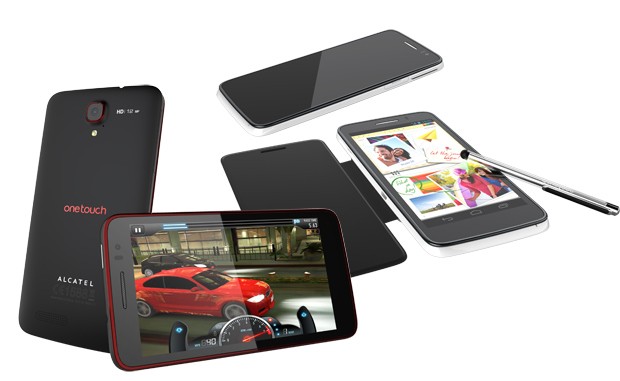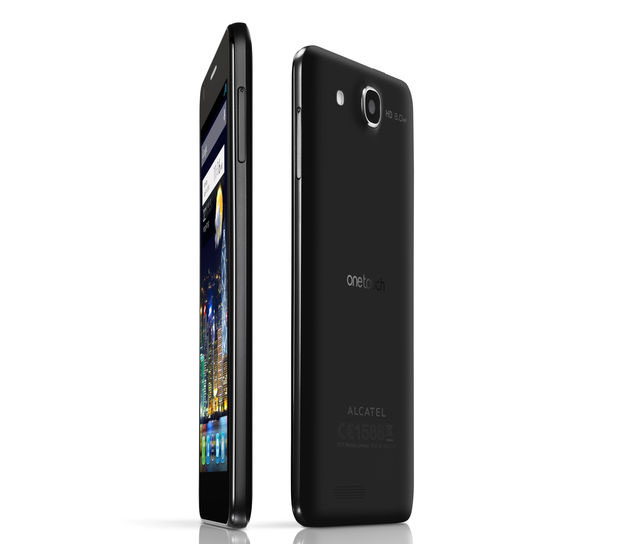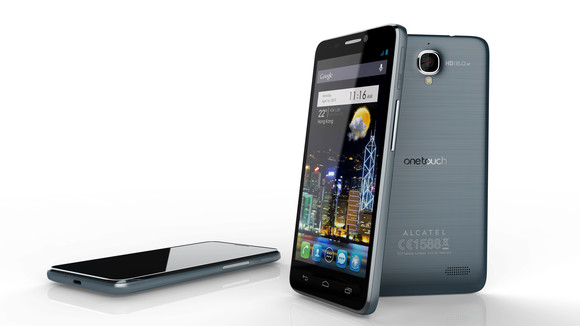TCL Communications, the Chinese manufacturer which operates its mobile phone division under the Alcatel One Touch brand outside of China has announced a new slate of Android smartphones, one of which has taken the mantle of world’s thinnest smartphone, at least for the time being during the International CES.
Starting with the Idol 645 smartphone, the phone features a bodyshell measuring just .45 mm thin – the world’s thinnest, according to Alcatel. The phone still manages to feature a 4.7-inch HD OLED display, 8-megapixel camera, and 1.2 GHz dual-core processor. It runs Android 4.1, but due to reasons beyond the control of the manufacturer, the 645 will not be slated for release in the US, and Alcatel One Touch is currently stating that the phone will not be released due to current FCC regulations while refusing to elaborate further.
As the secondary phone below the Idol Ultra, the Idol features similar specifications, with a 3.88 ounce weight and is slightly thicker at 8.15 mm thin. The phone features a dual-core 1.2 GHz processor, 4.7-inch qHD resolution IPS LCD display, and 8-megapixel camera underpinned by Android 4.1. Unlike the Ultra, however, the Idol is planned for U.S. release in the third quarter of the year, pending any more hangups with the FCC.
 To round out the lineup Alcatel has announced two versions of its Scribe phone/tablet hybrid: one featuring LTE support and another in the Scribe X featuring a 1080p panel with a faster processor and upgraded 12 megapixel camera while the standard Scribe HD features a 720p display, 1.2GHz processor and 8-megapixel camera. Both phones are slated for the US market and are expected to be released sometime in the middle of the year.
To round out the lineup Alcatel has announced two versions of its Scribe phone/tablet hybrid: one featuring LTE support and another in the Scribe X featuring a 1080p panel with a faster processor and upgraded 12 megapixel camera while the standard Scribe HD features a 720p display, 1.2GHz processor and 8-megapixel camera. Both phones are slated for the US market and are expected to be released sometime in the middle of the year.
With the above lineup, TCL is setting its own expectations quite high and looks to be working to shed the image of a low-end volume manufacturer known for cheap, low-quality product. While the above slate is a step in the right direction in terms of raw specifications, what remains to be seen is whether the Alcatel One Touch brand can be reinvented, much in the same way that HTC went from being a little known contract manufacturer to becoming a viable brand and manufacturer in its own right.
However the fact that its flagship model will not be made available in the US due to FCC certification issues does give one pause, as it means that without proper clearance, that phone will never see the light of day in North America, and that may be the catalyst for many distributors and carriers to think twice about striking a deal with the company, despite the obviously improved product.

